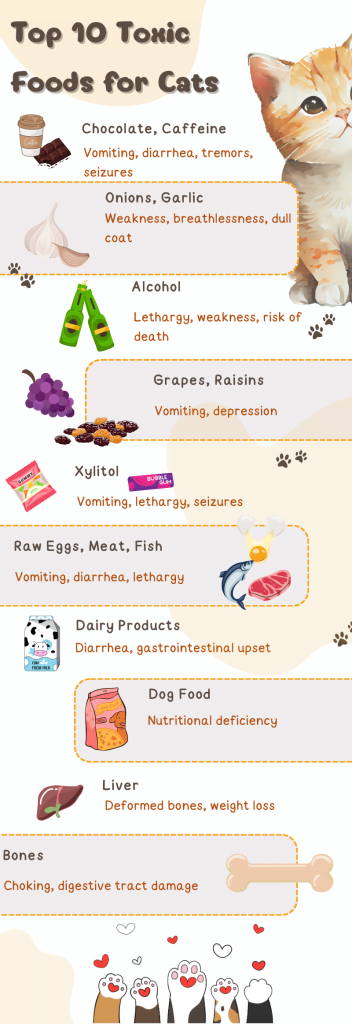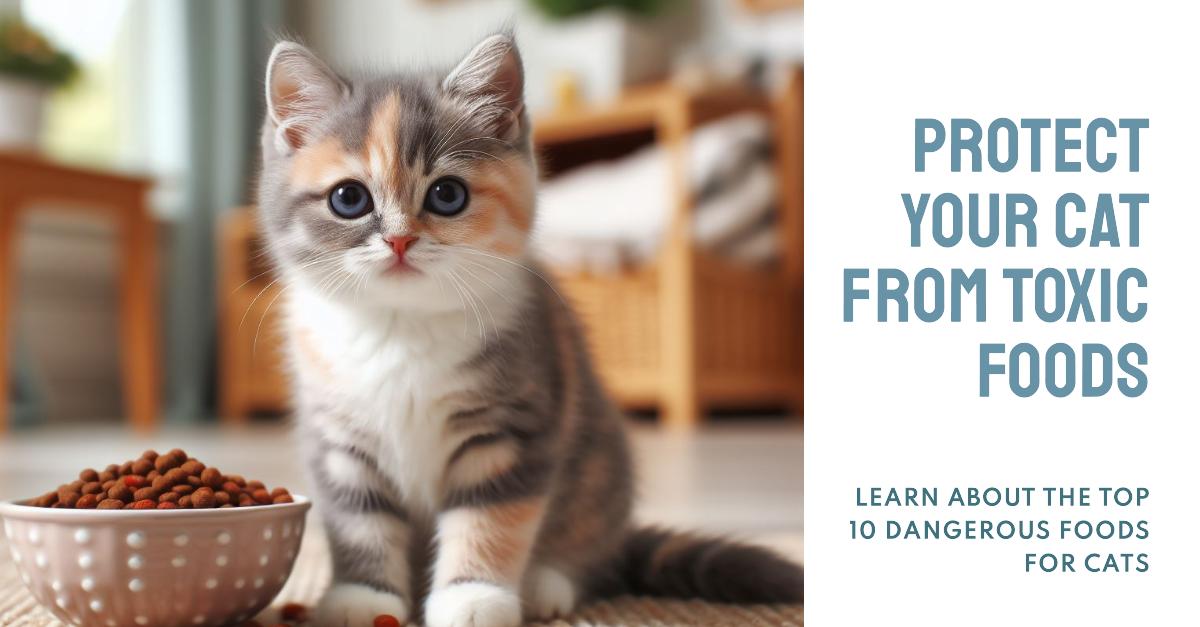As a cat owner, it’s crucial to be aware of the foods that can be dangerous to your furry friend. While sharing snacks might seem harmless, many common foods can pose significant health risks to cats. This guide details the top 10 foods you should avoid feeding your cat, along with symptoms of poisoning to watch for and preventive tips to ensure your pet’s safety.
Summary Chart
| Food Item | Symptoms of Poisoning | Prevention Tip |
|---|---|---|
| Chocolate, Caffeine | Vomiting, diarrhea, tremors, seizures | Keep away from reach, secure trash and storage areas |
| Onions, Garlic | Weakness, breathlessness, dull coat | Check ingredients, avoid table scraps |
| Alcohol | Lethargy, weakness, risk of death | Never leave drinks unattended, secure storage areas |
| Grapes, Raisins | Vomiting, depression | Keep out of reach, educate family |
| Xylitol | Vomiting, lethargy, seizures | Read labels, secure candies and gums |
| Raw Eggs, Meat, Fish | Vomiting, diarrhea, lethargy | Cook thoroughly, avoid raw diets |
| Dairy Products | Diarrhea, gastrointestinal upset | Use lactose-free alternatives |
| Dog Food | Nutritional deficiency | Feed cat-specific food |
| Liver | Deformed bones, weight loss | Feed in small amounts |
| Bones | Choking, digestive tract damage | Avoid giving cooked or raw bones |
Detailed Guide to Toxic Foods for Cats
1. Chocolate and Caffeine
Both substances contain methylxanthines, which are highly toxic to cats, affecting their heart and nervous system.
2. Onions and Garlic
These can cause oxidative damage to red blood cells, leading to anemia. Be wary of all forms, including powders.
3. Alcohol
Even small amounts can be fatal, impacting the liver and brain severely.
4. Grapes and Raisins
The exact reason is unclear, but these can lead to kidney failure.
5. Xylitol
Found in sugar-free products, xylitol triggers insulin release which can be dangerous.
6. Raw Eggs, Meat, or Fish
These can contain harmful bacteria and deplete essential vitamins.
7. Dairy Products
Most cats are lactose intolerant and cannot properly digest dairy.
8. Dog Food
Lacks essential nutrients required by cats, making it inadequate for their diet.
9. Liver
Excessive consumption can lead to vitamin A toxicity, affecting bone health.
10. Bones
Bones can splinter and cause severe internal injuries or choking.
Conclusion
Ensuring that your cat avoids these foods is key to their health. Consult with your veterinarian for advice on safe dietary choices and keep your home environment secure to prevent accidental ingestions. By being aware of these dangers, you can help keep your feline companion safe and healthy.






